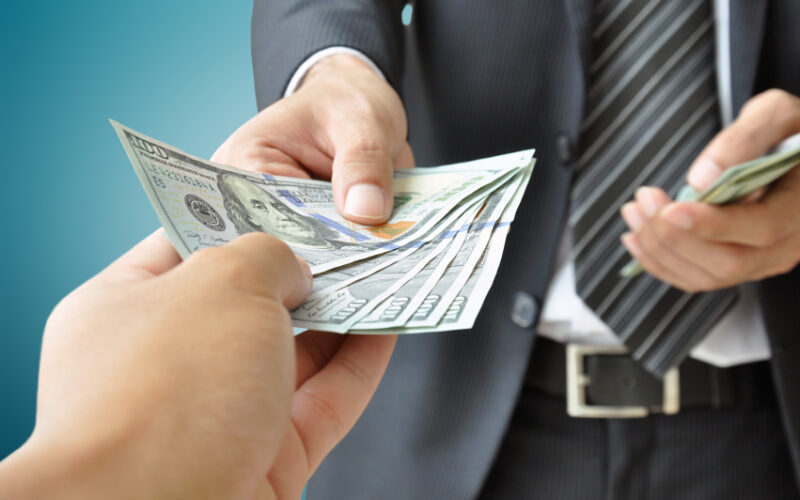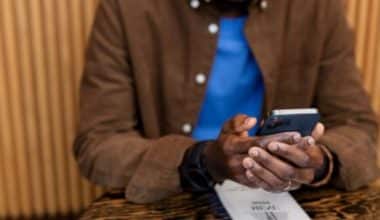Escrow checks are vital and important. It is useful to pay your insurance premiums, tax bills, and annual property bills. However, an escrow check surplus can occur from time to time, and you may be eligible for reimbursement from your mortgage lender. Some people are unsure how to put their escrow surplus checks. Hence, this article will explain what you may do with your surplus checks in a way that will be profitable to you and how to go about escrow surplus check that wasn’t cashed.
What Is an Escrow Account?
If you’re like the majority of homeowners who have a mortgage, your monthly payment includes more than just principal (the money you borrowed) and interest (what the bank is charging you for using its money). Part of your annual property tax bill, as well as a percentage of your annual homeowner’s insurance premium, are inclusive in your payment. Your lender takes this money from you in 12 equal installments over the course of a year, deposits it in an escrow account, and uses it to pay your taxes and insurance premiums when they’re due.
The account must have enough money in it to pay a tax or insurance bill when it is due. Your lender will establish your escrow payments to that level to ensure that this happens. However, the lender, on the other hand, may ask you to have a “cushion” in the account to cover unexpected cost rises.
So because money reimbursed in the event of an escrow surplus is money you pay to the lender, it isn’t taxable income because you’re just getting it back after paying tax. For example, When you return a microwave to the vendor and obtain a refund, that money is not taxable income; the concept is the same here.
What Is an Escrow Surplus Check?
You have an “escrow surplus” if the quantity of excess money in your escrow account exceeds the permissible cushion. An excess of up to $50 can apply to your future escrow payments by the lender. However, if your surplus exceeds $50, you have the right to a return escrow surplus check.
Let’s assume that your property taxes will be $7,000 this year and that your homeowner’s insurance will be $1000. To offset these charges, your escrow account must have at least $8000 in it. The mortgage company has set up an escrow cushion of 1/6 of the amount, which is $1000 hence your total escrow will be $9000. Meaning, if your monthly mortgage payment is $500 for escrow, you’ll put $6,000 into your escrow account, which is $400 more than the authorized cushion. You will receive a refund of $400. If you don’t want a refund, your lender may let you use the extra money to lower future payments or pay down the principal on your loan.
If you sell your house and have money left over in your escrow account, you’ll get a refund of the entire amount, even if it’s less than the cushion, because future property taxes will be prorated and the buyer will be responsible for them. Unpaid taxes will be deducted from the purchase price at the time of closure.
Situations That May Lead To Escrow Surplus Check Not Being Cashed
Unclaimed money is the most common source of uncashed checks in escrow accounts. Companies that manage escrow accounts for a variety of transaction types typically have effective standard processes in place to close escrow when a property is sold or paid off, thus amounts in escrow accounts are rarely left. Checks are cut to transfer any outstanding amounts to owners and close the escrow account at the time of a property sale or other transaction.
When a check does not reach the owner or the owner receives the check but does not cash it for whatever reason, the property becomes escrowed and becomes unclaimed. Situations that may result in the escrow-related unclaimed property include the following:
- After the sale of a property, escrow officers send outstanding escrow payments to the new owner at the previous address. The owner will not receive the payments if the check doesn’t reach him. Plus, these homeowners may not be aware that an escrow account balance exists or should exist after the sales of their property, so they are unlikely to seek it out and request a check.
- When an escrow account owner passes away, the family or estate managers may be unaware of the account amount.
- Rarely does the mortgage or escrow company fails to pay taxes or insurance without notifying the customer. The customer then receives tax and insurance bills, forgetting that funds are in escrow. Most customers are unaware that they must monitor and reconcile their accounts. Despite regular reminders from escrow and mortgage providers, homeowners find the tasks confusing and don’t understand how it functions.
- Owners may not grasp insurance or government statements since they don’t directly track taxes and insurance paid out of escrow. Owners who are unfamiliar with financial activities may receive a check and mistake it for trash mail.
- If a buyer backs out of an agreement before it closes, the transaction fee may stay in the escrow account. If the escrow manager does not follow proper procedures, this money could be held in the account indefinitely.
- There’s a likelihood is that an escrow surplus check is received and either misplaced or inadvertently thrown away, never to be cashed.
- If an escrow account balance remains with the mortgage company during the dormancy period without being transferred to the owner, it is termed unclaimed property.
What Happens When Escrow Surplus Check Is Not Cashed?
Use a method that subtracts any uncashed checks from your available funds. After printing the check, they simply deduct the money from your checking account. However, if the payee doesn’t deposit the check within a specific time, usually six months, you will get a refund on your account.
What Do I Do if I Get a Surplus Escrow Check From My Mortgage Lender?
At the end of the year, you had a surplus of cash in your escrow account, and your mortgage lender issued you a refund check for that amount. You’re wondering what you should do with these funds at this point. The good news is that there isn’t a particular “perfect” way to spend this money. In the end, it depends on your financial circumstances. There are tons of ways you can utilize the refund to your advantage. The following are some of the ways
#1. Return Funds to Lender
If you’re anxious about property taxes or homeowners insurance premiums rising. You can deposit your refund check in your checking account and send it back to your lender, indicating that you want the deposited funds in your escrow account instead.
For example, many lenders allow homeowners to decide whether surplus funds sent should go toward the principal balance or an escrow account on their monthly bills. Remember to tell them it’s for escrow. You can donate extra escrow funds with your next mortgage payment if your lender doesn’t provide this choice.
#2. Clearing Your Credit Card Debt
If you have a lot of credit card debt, you might use your refund to pay some of it off. Credit card debt has high-interest rates, so paying it off immediately might stand as the best possible option for you. An escrow surplus refund can assist.
#3. Investing Escrow surplus
If you want your escrow surplus to increase, you can invest it in equities, bonds, or Certificates of deposit. While losses are conceivable, these savings platforms often outperform conventional savings accounts.
#4. Boost Your Retirement Funds
To save for retirement, you could use your surplus check. If you haven’t hit your annual contribution limit, you can put these funds in a regular or Roth IRA.
Conclusion
In conclusion, your escrow surplus check isn’t a sort of payment to you. It’s basically a refund of money you gave the lender to cover your bills on your behalf. Escrow check surplus happened because you had excess funds in your escrow account at the end of the year, so your mortgage lender sent you a refund check. However, using it profitably makes the difference.
FAQs
Why did i get an escrow surplus check?
If your taxes and/or insurance costs were lower than expected, your account may have a surplus. If the surplus is $50 or more, a surplus check will add to your Annual Escrow Analysis
What should i do with my escrow refund check?
You should immediately deposit your insurance refund check into your escrow account. Your mortgage servicer uses your escrow account to hold money in reserve for your homeowner’s insurance and property taxes
What are mortgage escrow refund rules?
If you have a remaining balance in your escrow account after you pay off your mortgage, you will be eligible for an escrow refund of the remaining balance. Servicers should return the remaining balance of your escrow account within 20 days after you pay off your mortgage in full. Lowered tax bills.






